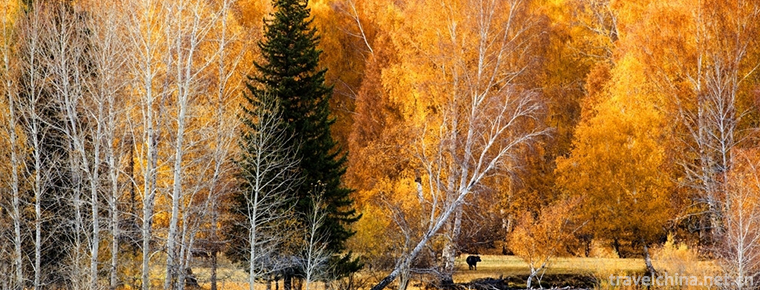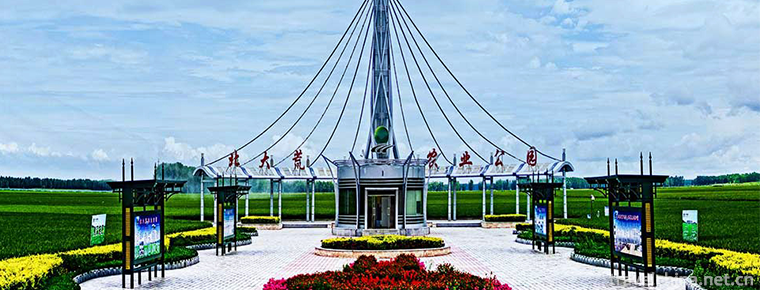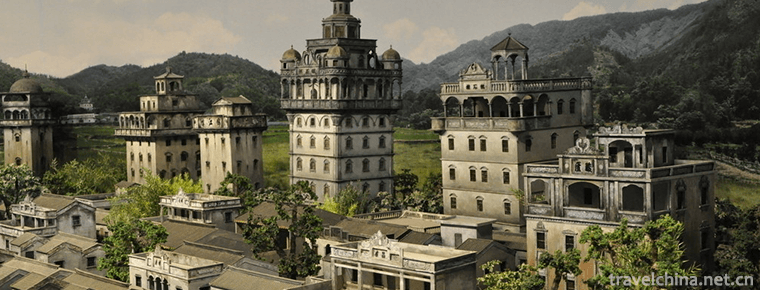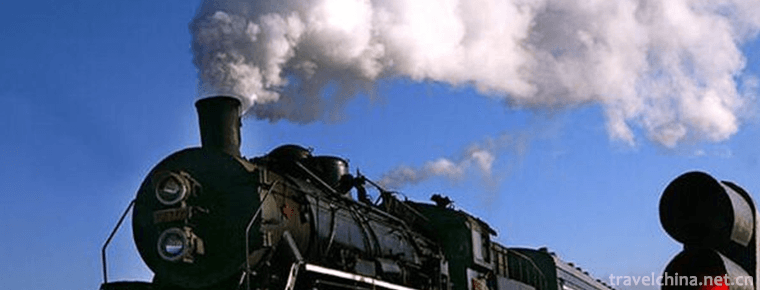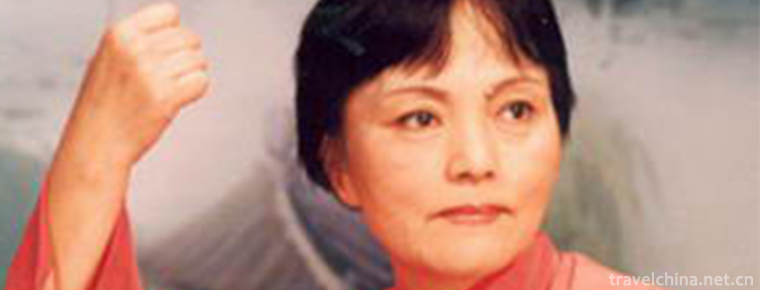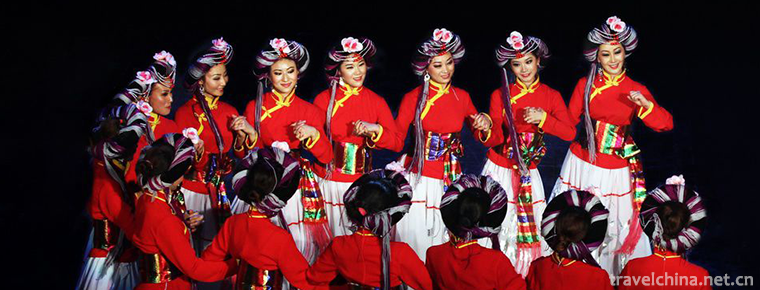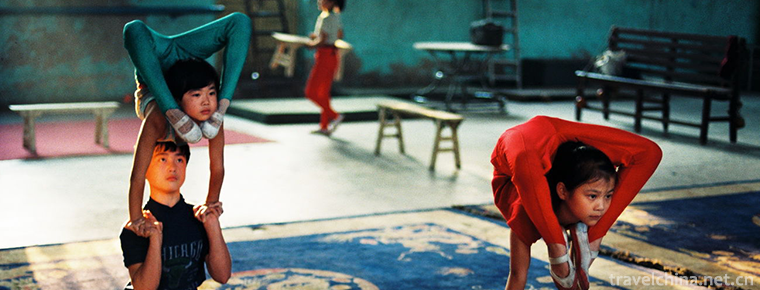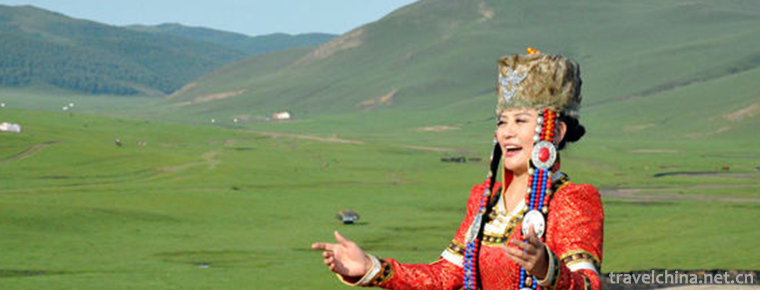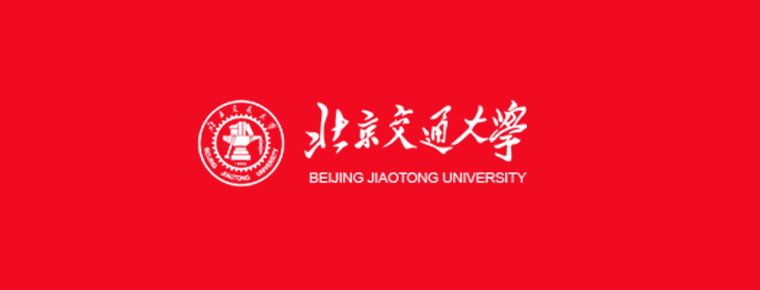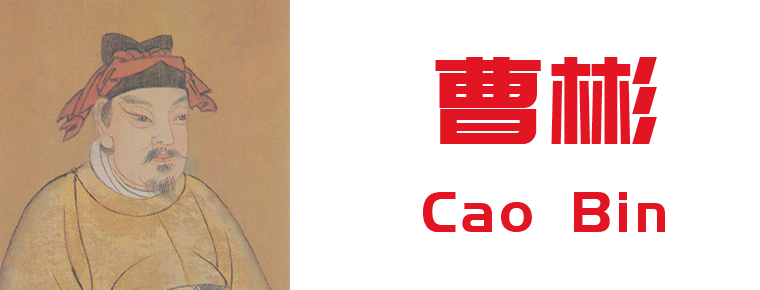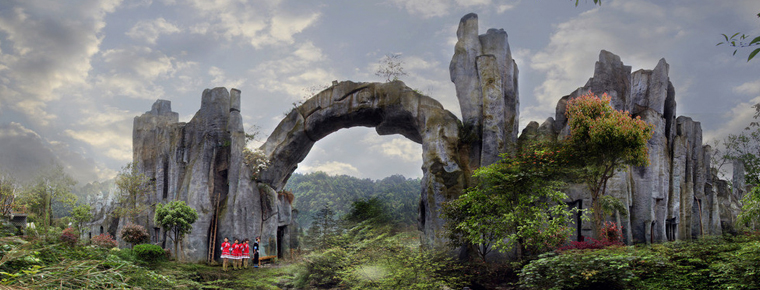Beijing opera Peking Opera
Beijing opera
Peking Opera, once known as Peking Opera, is one of the five major Chinese operas. The setting lays stress on freehand brushwork. The tone is mainly Xipi and Erhuang, accompanied by Huqin and gongs and drums. It is regarded as the quintessence of China and the top three Chinese operas.
Hui Opera is the predecessor of Beijing Opera. Since the fifty-five years of Qianlong reign in the Qing Dynasty (1790), Sanqing, Sixi, Chuntai and Hechun, formerly performed in the south, have entered Beijing one after another. They cooperated with Han tune artists from Hubei Province, and at the same time accepted part of Kunqu and Qin tunes, tunes and performance methods, absorbed some local folk tunes, and finally formed Peking Opera through continuous exchanges and integration. After the formation of Peking Opera, it began to develop rapidly in the court of the Qing Dynasty until the unprecedented prosperity of the Republic of China.
Peking Opera has traveled all over the world, with Beijing as its center and throughout China. It has become an important medium for introducing and disseminating Chinese traditional art and culture. On November 16, 2010, Peking Opera was listed in the World Intangible Cultural Heritage List.
In December 2018, the General Office of the Ministry of Education announced that Shenyang Normal University, China Academy of Traditional Opera and Nankai University were the bases for the inheritance of excellent traditional Chinese culture of Beijing Opera.
Origin period
On the rich side of Huizhou businessmen, the success of Commerce has led to the rise of cultural consumption desire . With the development of social economy and the rise of Kunshan Opera, family groups and role fights have been raised one after another, and efforts have been made to collect songs and dances for the south of the Yangtze River in Qianlong, at the expense of packaging the Huizhou Opera color art, objectively creating conditions for Huizhou Opera to enter Beijing. For more than 500 years, the Huizhou merchant gang in the business circles of the Ming and Qing Dynasties was famous for its salt merchants, especially those in Shexian County, Huangshan, and the wealthy one. With the development of social economy and the rise of Kunshan Opera, scholars and businessmen in Jiangnan and Jiangbei have raised family theatres. Huizhou businessmen who have emerged in foreign business circles have followed suit. The Opera Troupe club, which has long been adopted by a Huizhou businessman, is called "Huiban" by outsiders. The Huizhou merchants'Guang Zhu Jia Ban, along the Yangtze River in Anhui Province, including the local operas in ancient Huizhou, also began to flourish. They sang Kun Opera, but they did not "harmonize Wu Yin" because of the differences in language. They inadvertently sang a little. Especially the Shipai Diao, which was born in Huaining County, Anqing City, Anhui Province, is the most famous. Huizhou artists came to Yangzhou with their native accent, and received the kindred patronage and heavy financial support of Huizhou merchants. They either haunt the pier streets or are sheltered by the wealthy businessmen in Huizhou. With the development of skills, local accents are gaining the upper hand.
It is worth mentioning that Jiang Chun, a great salt merchant in Shexian County, is an opera connoisseur with high taste. He loves opera very much. He often has "three or four operas, feasting in the same day's Pavilion hall, and hundreds of guests" at home. He gathered all kinds of famous characters together, and made different voices complement each other, so that the emergent Hui Ban had an open pattern of absorbing all the strengths of the masses. "Random play" singing, unusually popular. At this time, the most applauding is the opera artists from Anqing, Qing Li Dou wrote in "Yangzhou Painting Records": Anqing color art is the best, covered by the local random bombs, so there are recruits among the local random bombs. Huizhou merchants have further established their foothold in the business world, and their relationship with the art of opera has become closer and closer. The emergence of a large number of "Huiban" opera writers has also been further developed under the new historical conditions.
No class without stones
Peking Opera industry
Shipai is an ancient market town in Huaining County, Anqing City. The "stone" of "no stone does not work" means here, and also refers to Anqing and its thousands of ships. Businessmen from Jiangxi, Fujian, Hubei and other places have set up offices and festivals here in succession. At that time, except for the local residents, Shipai was mostly used by boat gangs and merchants. When the problem of survival became easier, they began to build their own market culture.
There were as many as 800 theatrical stages available for performance at that time, including not only theatres, theatres, but also flower stages. There are three theaters in Shipai Town. The Changle Grand Theatre on Shangzhen Hengjie can accommodate more than 600 audiences and is dedicated to the performance of Hui Diao and Pi-reed Class. Theatre buildings are usually in ancestral halls. Ancestral theatre buildings usually only sing grand operas. Every winter solstice festival, promotion and celebration of the life of officials and gentry within the clan are held every year, and theatre troupes are hired to perform in theatre buildings. In addition, when the ancestral temple was completed, classes were invited to sing operas to congratulate them. "Du Opera Fu" describes: "Hui Ban Days lose beauty, from the stone cards." It shows that Anqing Huiban had a brilliant history. Many famous actors of Peking Opera were from this area, so there is a saying that "no stone is no class".
Hao Tianxiu, Cheng Changgeng, Yang Yuelou and many other top performers have emerged in Shipai's bullet field. "No stones (cards) out of class!" The saying was widely circulated for a time. Careful ticket-holders of Peking Opera can easily find that many words in the singing tune of Peking Opera have different pronunciation from Beijing dialect. If you know the dialect of Anqing area, you will find that these words are exactly the same pronunciation as those in Anqing dialect.
At the beginning of the Republic of Anqing, there was a "popular" theatre. At that time, the famous opera actors in the whole country basically performed here. They all came to Anqing with a "pilgrimage" mood. Cao Yu, a great dramatist, went to Shipai Town of Huaining. The first sentence of getting off the bus was "I'm going to make pilgrimage". Those who came out of the old Beijing Opera class did not perform in Anqing for ten days and did not sing copies. At that time, they were regarded as "horns" with no prospects for development. Huizhou Opera, which originated in the countryside of Shipai in Anqing ancient town, went out of the ancient town to Beijing. The glorious historical glory of Huiban's entry into Beijing is still shrouded in the ancient town Shipai. Anqing is one of the earliest cities in China to accept modern civilization. It is also a national historical and cultural city. At the same time, Anqing is also the home of Huangmei Opera, a world-renowned drama with local characteristics. Cheng Changgeng Memorial Hall, located in Qianshan County, Anqing, contains more than 300 precious materials and pictures, which reproduces the development and prosperity of Beijing Opera. In addition, there is Cheng Changgeng's former residence for fans to look forward to.
Pear Garden in Susong Street
The origin of Huiban's entrance to Beijing is Yangzhou. Before departure, outstanding actors with outstanding skills must meet at the General Administration of Liyuan, located in Su Song Street, to discuss the departure schedule and performance repertoire, and put on a figure, shake off two sleeves, and raise a few beautifully rounded singing voices. Sometimes they simply rehearsed several operas, such as "You Yuan" or "Si Fan", which were full of voices and feelings and graceful. At that time, the Su Song Street was very lively.
Su Song Street is the only street directly related to theatre troupes preserved in old Yangzhou. At that time, Xu Shangzhi, a salt merchant, recruited Kun Opera artists from Suzhou to run the first Kun Opera Class in Yangzhou, "Lao Xu Class", just on this street.
In the autumn of 1790, in order to celebrate the eightieth birthday of Qianlong, Yangzhou salt merchant Jiang Heting (Anhui people) organized an Hui Opera Troupe called "Sanqing Band" in Anqing, led by artist Gao Langting to attend the birthday performance in Beijing. This Hui troupe mainly sings Erhuang tune, and concurrently sings Kunqu Opera, Blowing Tune, Bangzi and so on. It is a troupe of all kinds of tunes playing concurrently. Beijing's birthday celebrations are on a grand scale. From Xihua Gate to the sorghum Bridge outside Xizhimen, a stage is set every dozen steps, with South-to-North tune and four-way fun. Or chorus singing, or shaking fans of dancing shirts, the front has not yet rested, the back has begun, a crowd of operas gathered, all arts contend for victory. In this art competition, the first Sanqing Huiban class in Beijing came to the fore and attracted great attention. Gao Langting of Sanqing Class is a native of Anqing, Anhui Province. He was sixteen years old when he entered Beijing. He was good at playing Danjiao, and was skilled in Erhuang Opera. "Look at Flowers Now" called him: "Just like a scarf, without any improvement. There is no need to solicit songs, laugh at each other, sit together, describe the soft female expression, almost change the situation.
Four Hui Banks Entering Beijing
After the success of Sanqing Class in Beijing, another Hui Class, such as Four Comedy Classes, Hechun Class and Chuntai Class, entered Beijing, and gradually became more and more prominent in Beijing opera circle. This is the so-called "four Hui Banks into Beijing".
Each of the four Hui Banks has its own strong points, such as "the axle of Sanqing, the song of Sixi, the handle of Chun, the child of Chuntai". The axle refers to a series of performances of the whole opera, the opera refers to a good singer of Kunqu opera, the son refers to a victory in martial arts, and the child refers to a child who is good at acting.
In the capital city where the wind of holding Dans is very popular, the skilled Gaolangting Pavilion is naturally favored. When he arrived in Beijing, he succeeded Yu Laoshi, the former master of the Sanqing Class, who had been in charge of the class for more than 30 years. He also served as the head of the Jingzhong Temple, the organization of the Peking Teacher's Opera Industry Guild. Through the Zhongzhong Temple, he managed the theatres and theatres in Beijing and became the leader of the Pear Garden. Following Gao Langting, Cheng Changgeng, Xu Xiaoxiang, Yang Yuelou and Liu Chai-san all held the post.
By the beginning of Jiaqing, Huiban had taken the leading position on the stage of Beijing opera. According to the "Menghua Trivial Book", it was recorded that "the Opera Troupe must be Huiban". The major theatre owners, such as Guangde Tower, Guanghe Tower, Sanqing Garden and Qing Paradise, must also be based on Huiban. Next, Hui Ban, Xiao Ban and Xiban are all suitable for each other.
The four Hui troupes came to Beijing to present their performances, which opened the prelude to the spectacular history of Chinese Peking Opera for more than 200 years.
Facing the omnipotent and omnipotent artistic advantages of Hui Ban, artists of all kinds of operas in Beijing are unable to compete with it, and most of them turn to Hui Ban. Among them, there are excellent performances of various types of Beijing Opera in the stage of Beijing Normal University, such as Yumi Xizi and Li Fenglin of Hubei Han Opera in Chuntai Class, Han Xiaoyu of Hunan Random Dance (Pihuang) in Four Comedy Class and Wang Quanfu, a Beijing-born Beijing Opera actor in Sanqing Class, etc., thus forming a trend of gathering various types of opera in Huizhou Class. Therefore, in the process of various tunes'miscellaneous music, Huiban gradually focused on the performance of Pihuang Opera from "two pots" to "three pots" to "wind stirring snow".
Formation and dissemination
The predecessor of Peking Opera was the Hui Class, which was popular in Jiangnan area in the early Qing Dynasty, mainly composed of singing and blowing tunes, high dial and Erhuang. Huiban has strong mobility, frequent contacts with other operas, and mutual communication and infiltration in the vocal cavity. Therefore, in the process of development, it also plays many Kun Opera, and absorbs the Lolo Tune and other miscellaneous songs. In the fifty-fifth year (1790) of Emperor Qianlong in the Qing Dynasty, the first Hui Class (Sanqing Class) headed by Gao Langting (Ming Yue Guan) entered Beijing to perform in celebration of Emperor Qianlong's eightieth birthday. "Yangzhou Painting Boat Record" contains: "Gao Langting entered the Beijing Normal School, with the Anqing Flower Department, combined with the Beijing and Qin Erqiang, named its class as Sanqing. Yang Maojian's Menghua Trivial Book, published in Daoguang's 22nd year (1842), also said, "Before the Fourth Happiness, Sanqing was the ancestor of Huiban when Geng Xu, in the fifty-fifth year of Qianlong, and Gaozong, in the eighty-eighth year of his longevity, entered the Zhuboxes of the capital." Wu Zishu, in his commentary on Suiyuan Poetry Tales, more specifically pointed out that "Governor Wu Nala of Fujian and Zhejiang ordered Zhejiang salt merchants to wish Li to Anqing Hui people." Subsequently, many Huizhou classes came to Beijing one after another. The famous classes are Sanqing, Sixi, Chuntai and Hechun. Although Hechun was founded in the eighth year of Jiaqing (1803), later than the thirteenth year of Sanqing, later generations still call it the "Four Huiban Entering Beijing".
There have been many names. There are: random play, spring tune, Beijing spring, Beijing second spring, Leather spring (Pihuang), Erhuang, Grand Opera, Peace Opera, Old Opera, National Opera, Beijing Opera, Peking Opera and so on.
Incubation period
Hui-Qin confluence
In the early Qing Dynasty, Kunqu Opera and Jingqiang Opera (Qingyang Opera) prevailed on the stage of Beijing Opera. After the mid-Qianlong period, Kunqu Opera declined gradually, and the prosperity of Beijing Opera replaced the unified stage of Kunqu Opera. In Qianlong forty-five years (1780), Qin Opera artist Wei Changsheng moved from Sichuan to Beijing. Wei Shi took Shuangqing Ban to perform Qin Opera "Rolling Tower" and "Back to the House" and other plays. Wei Changsheng was beautiful in appearance, sweet in voice, euphemistic in singing and exquisite in workmanship. As soon as Rolling Tower was published, it stirred the capital. Shuangqing Ban is also known as "Kyoto No. 1". Since then, Beijing Opera began to decline, and the six famous classes of Beijing Opera, Dacheng Class, Wangfu Class, Yu Qing Class, Yu Qing Class, Huiqing Class, Baohe Class, have no one to ask about, and have joined the Qin Opera Class to make a living. In the fiftieth year of Qianlong (1785), the Qing Dynasty had a bad taste for Wei Changsheng's performance. The Qin Opera was forbidden to perform in the capital by the Ming Dynasty, and Wei Changsheng was expelled from the capital.
In the fifty-fifth year of Qianlong (1790), after Sanqing Ban settled in the capital city (the class is located in the alley of Hanjiatai), there were also classes of Sixi, Qixiu, Nei, Chuntai, Hechun, Sanhe, Songzhu, Jinyu, Dajinghe and so on. They also performed in Dafen area. Among them, Sanqing, Sixi, Hechun and Chuntai are the four most famous, so they are called "the four Huiban".
When the Spring Tai Class entered Beijing, Mi, who was named after the Han Dynasty, was earlier than the late Qianlong Dynasty. When he served as the platform pillar of the Spring Tai Class in Beijing, it proved that the Spring Tai Class entered Beijing earlier than Sixi He Chun. Chuntaiban is located in Baishun Hutong.
Four wedding classes came to Beijing at the beginning of Jiaqing. Hui Opera, Kunqu Opera, especially Kunqu Opera, has the phrase of "a new row of peach blossom fans, spreading four happy classes everywhere". This class is located in Shaanxi Lane.
He Chunban was founded in the eighth year of Jiaqing (1804) in the oblique street of Li Tieguai. The class is good at martial arts. Daoguang was dissolved in 1853.
The performances and styles of the "Four Huiban" have their own advantages, so they are sometimes known as "the axle of Sanqing, the song of Four Happiness, the master of Hechun and the child of Chuntai". In addition to singing Hui tunes, the "Four Hui Classes" are also used in Kun, Blowing, Siping and Bangzi tunes, which can be described as the simultaneous performances of various tunes. In the performing arts, they absorbed the advantages of various operas and merged them into Hui Opera. In addition, the performances have a well-organized lineup and a rich repertoire, which is very popular with the audience in Beijing. Since Wei Changsheng was forced to leave Beijing, the Qin Opera was depressed. For the sake of livelihood, Qin Opera artists joined Hui Class one after another, forming a situation of integration of Hui and Qin Opera. In the process of Huizhou-Qin confluence, Huiban widely adopted the essence of Na-Qin Opera's singing, performance and a large number of scripts transplantation, which created favorable conditions for the further development of Huizhou Opera art.
Hui-Han confluence
Han Opera is popular in Hubei Province. Erhuang, Xipi and Hui Opera in their voices are closely related. Before entering Beijing, Hui and Han Opera had a wide artistic blend. Following the late Qianlong period, Mi Ying, a famous Chinese opera artist, advanced to Beijing. At the beginning of Daoguang Year (1821), famous Chinese opera veterans Li Liu, Wang Honggui, Yu Sansheng and Xiaosheng Long Deyun came to Beijing to perform in Hui Ban Spring Platform and Spring Band respectively. Mi Ying is famous for singing Guanyu Opera. The Hongjing Opera of Changgeng in Sanqing Class was taught by Mi Ying first. Li Liu is famous for "Drunk Writing Scared Man Books" and "Sweeping Snow"; Wang Honggui is famous for "Let Chengdu" and "Beating Drums and Cursing Cao"; Xiaosheng Longdeyun is good at performing "Yuanmen Shooting" and "Yellow Crane Tower"; Yu Sansheng is well-known for his old dramas such as "Dingjunshan", "Silang Detecting Mother", "Dangzhang Selling Horse" and "Touching Stele". After entering the Huizhou Opera Class, the performers of the Han Opera melody, performance skills and repertoire are integrated into the Huizhou Opera, which makes the singing style of the Huizhou Opera more and more rich and perfect. The singing method and pronunciation of the Huizhou Opera have more characteristics of the voice in Beijing area and are easy to accept by the Beijing people.
In Daoguang 25 years (1845), all the famous classes were headed by old students. After the confluence of Hui and Han Dynasty, the Xipi tune of Hubei and the Erreed tune of Anhui were exchanged again. The confluence of Hui, Qin and Han lays the foundation for the birth of Beijing Opera.
Formation period
From Daoguang 20 years to Xianfeng 10 years (1840-1860), Jinghui Opera, Qin Opera and Han Opera merged, and Beijing Opera was formed by absorbing the advantages of Kunqu Opera and Beijing Opera. One of its symbols is that the melody is complete and rich, which surpasses any of the three dramas of Hui, Qin and Han Dynasty. The aria is composed of a board chamber and a music plate. The vocal tune is mainly composed of Erhuang and Xipi; secondly, the performance is generally complete; thirdly, a number of Peking Opera repertoires have been formed; fourthly, Cheng Changgeng, Yu Sansheng and Zhang Erkui are the representatives of the early stage of Peking Opera formation. They are called "Laosheng Sanjie" and "Santiangjia", namely, "Top Yuan" Zhang Erkui, Cheng Changgeng, and "Chenghua" Yu Sansheng. They have made outstanding contributions to the creation of the main tunes of Peking Opera, Xipi, Erhuang and the forms of Peking Opera operas, as well as the spoken and pronunciation features of Beijing language.
Among the first generation of Peking Opera actors, there are Laosheng Lu Shengkui, Xue Yinxuan, Zhang Rulin, Wang Jiuling, Mei Lanfang, and so on; Xiaosheng Long Deyun, Xu Xiaoxiang; Danhu Xilu, Luo Qiaofu, Mei Qiaoling; Ugly Yang Mingyu, Liu Qusan; Laodan Haolantan, Tan Zhidao; Jingzhu Cannabis, Ren Huafa, etc. They have unique creation for enriching the vocal and performing arts of various professions. Mei Qiaoling, the successor of the "Four Hippies" class leader, dared to break through the old rules of strict division of labor between Qingyi and Huadan, and opened up a new road for Danjiao's singing art.
The Thirteen Excellent Lings of Tongguang is a famous color costume portrait in the history of Peking Opera. It was painted by Shen Rongyuan, a folk painter in the late Qing Dynasty. Referring to the form of opera figure painting "Thirteen Excellent Peking Opera" painted by He Shikui in the middle of Qing Dynasty, he selected thirteen famous actors (Cheng Changgeng, Lu Shengkui, Zhang Shengkui, Yang Yuelou, Tan Xinpei, Xu Xiaoxiang, Mei Qiaoling, Shi Xiaofu, Yu Ziyun, Zhu Lianfeng, Haolantian, Liu Caisan and Yang Mingyu) on the stage of Peking Opera in the reign of Guangxu (1860-1890). They portray the characters in the play with meticulous brushwork, which shows the author's deep power. This painting was purchased by Zhu Fuchang, the Evolutionary Society, in the bookstore in 1943. It was reduced and photocopied, and a volume of "Thirteen Dead Biographies of Tongguang Ling" was compiled.
mature period
From 1883 to 1918, Peking Opera entered its mature stage from its formative stage. Its representative figures were Tan Xinpei, Wang Guifen and Sun Juxian, who were known as the "Three Great Old Men". Among them, Tan Xinpei inherited the artistic strengths of Cheng Changgeng, Yu Sansheng and Zhang Erkui, and promoted Peking Opera art to a new mature stage through creative development. Tan enjoyed a wide range of artistic practices. He drew lessons from Kunqu Opera, Bangzi Opera, Big Drum Opera, Qingyi Opera, Huafa Opera and Laodan Opera, and merged them into singing, creating a "Tan School" with unique singing style, which formed a situation of "learning Tan without tune". After the 1920s, Yu Shuyan, Yan Jupeng, Gao Qingkui and Ma Lianliang all developed into different art schools on the basis of the "Tan School". Wang Guifen, Art Zong Cheng Changgeng, sings vigorously and gloomily, solemnly and vigorously, with a simple and unadorned tone, and has the comment of "tiger whistling and dragon singing". He has the reputation of "Changgeng Re-existence" because "imitation process can be untrue". Sun Juxian, 18 years old, chose Wu Xiuci, good at singing Peking Opera, often singing at the box office, after 36 years old, joined Cheng Changgeng. He has a loud noise and is at ease. Speaking Bai is not restricted to Huguang Yin and Zhongzhou Rhyme, but mostly uses Beijing Yin and Beijing Character, which sounds friendly and natural. The performance is generous and realistic, close to life. The three masters of the old generation have their own emphasis and different artistic styles. From a comprehensive balance, Tan Xinpei's artistic attainments and development of Peking Opera far exceed Wang and Sun's. During the Guangxu period, Tan Xinpei was known as the "king of Lingjie" and occupied a position in the theatre, such as Cheng Changgeng in that year.
Xianfeng 10 years (1861) Peking Opera began to perform in the court. From the sixth day of May to the end of the month, the performances were performed by Sanqing Class, Four Comedy Class, Shuangkui Class and Foreign Class (Peking Opera Class). In the ninth year of Guangxu (1883), on Cixi's fiftieth birthday, 18 people, including Zhang Qilin, Yang Longshou, Baofushan, Caifulu and Yan Fuxi, were selected to serve in the palace. They not only sang, but also taught Peking Opera to eunuchs. Since then, the Qing Palace's performing agency, Shengping Department, has selected famous artists to serve in the palace every year, ending Xuantong's three years (1911). More than 150 famous artists such as Tan Xinpei, Yang Yuelou, Sun Juxian, Chen Delin, Wang Lengxian, Yang Xiaolou, Yu Yuqin, Zhu Wenying, Wang Yaoqing, Gong Yunfu, Mu Fengshan, Qian Jinfu, Dan, Jing and Ugly have entered the palace. Cixi's hobby for Peking Opera, coupled with frequent performances by famous Peking Opera artists in the palace, is gaining momentum. During the same period, there were Beijing Opera performances in Guangde Tower, Sanqing Garden, Qing Paradise Park, Zhonghe Garden, Civilization Garden and other theatres in Dazhai area, forming a unified situation of Beijing Opera. In the mature period of Peking Opera, besides the "three masters of old life", Shengxing: Xu Yintang and Jia Honglin; Wusheng: Yu Jusheng and Yang Longshou; Jingxing: He Jiashan, Huang Runfu, Jinxiushan, Qiu Guixian, Liu Yongchun; Xiaosheng: Wang Lingxian, Dejuru, Lu Huayun; Danxing: Chen Delin, Tian Guifeng, Wang Yaoqing, Zhu Wenying; Ugling: Wang Changlin, Zhang Hei, Luo Baihua, Xiao Changhua, Guo Chun. Mountain. During this period, the rise of Danjiao formed the trend that Danjiao kept pace with Shengjiao. Yu Jusheng, Wusheng, was the first person who started Wusheng's self-supporting portal. He was called "the originator of Wusheng" by later generations. The above-mentioned famous artists have innovated and developed in their inheritance, and their singing skills have matured day by day, pushing Peking Opera to a new height.
Meridian
Since 1917, a large number of outstanding performers of Peking Opera have emerged, presenting a flourishing situation of various schools, from the mature stage to the peak stage. The representatives of this period are Yang Xiaolou, Mei Lanfang and Yu Shuyan.
In 1927, Beijing Shuntian Times held a selection of famous actors in Beijing Opera Danjiao. Readers'voting results: Mei Lanfang, Shang Xiaoyun, Cheng Yanqiu, and Xun Huisheng won the "Four Famous Dances" for their roles in Taizhen Outside Biography, Modern Girl, Hongfu Biography and Danqing Yin. "Four Famous Dances" stand out as an important symbol of the prosperity of Peking Opera. They created different artistic styles, formed Mei Lanfang's dignified and elegant, Shang Xiaoyun's beautiful and vigorous, Cheng Yanqiu's deep and euphemistic, and Xun Huisheng's charming and tender "four schools", and created a pattern of Beijing Opera stage dominated by Dan. Following Yu Jusheng and Yang Yuelou, Wusheng Yang Xiaolou developed the performing art of Wusheng in Beijing Opera to a new height, and was praised as "the master of national opera" and "Wusheng Taidou". Yu Shuyan, Gao Qingkui, Yan Jupeng and Ma Lianliang, who lived in Laosheng, were called the "Four Great Successful Lives" in the 1920s. At the same time, Shi Huibao, Wang Fengqing and Guan Dayuan are also outstanding talents in their daily life. In the late 1930s, Yu, Yan and Gao retired from the stage successively. Ma Lianliang and Tan Fuying, Xi Xiaobo and Yang Baosen called them "the Four Great Necessaries". Female Xusheng Meng Xiaodong has a high artistic attainment and is quite the artistic style of Shi Yu Shuyan.
In the autumn of 1936, Beijing opera fans and audiences wrote letters to newspapers advocating the election of Beijing opera children. Ye Longzhang, president of Shifulian Cheng Society, negotiated with Jin Dazhi, president of Peiping Liyan Newspaper. The newspaper issued an announcement to receive votes from all walks of life, published voting figures in the newspaper day by day, and invited several people from Yunshi Society to supervise the newspaper. It is stipulated that the voting date is half a month, and the number of votes to be counted on the spot is also checked by the persons in charge of the Chinese Opera School and Fulian Cheng Society, as well as by the "Shibao", "Shibao", "Shibao", "Beijing Evening News" and "Drama Daily". As a result of the election, Li Shifang of Fulian Chengshe won about 10,000 votes and was elected President of Tongling. Health champion Wang Jinlu, runner-up Ye Shichang; Danjiao champion Mao Shilai, runner-up Song Dezhu; net horn champion Qiu Shirong, runner-up Zhao Deyu; clown champion Zhan Shifu, runner-up Yin Jinzhen. After the election, a celebration meeting was held at Fulian Chengshe, Hufang Bridge, and a coronation ceremony was held at the Huale Theatre in Fresh Fish Mouth that evening. Farewell My Concubine was performed by Li Shifang and Yuan Shihai.
After the election of Tongling, Li Shifang, Zhang Junqiu, Mao Shilai and Song Dezhu were selected as the "four minor celebrities". The "four minor celebrities" performed "Biography of White Snake" and "Four Five Flowers Cave" in two theaters in Chang'an and Xinxin to express congratulations.
Various schools and abundant talents are another symbol of the heyday of Peking Opera. In addition to Yang School (Yang Xiaolou), Mei School (Mei Lanfang), Shang School (Shang Xiaoyun), Cheng School (Cheng Yanqiu), Xun School (Xun Huisheng), Xiao School (Xiao Cuihua), Song School (Song Dezhu), Zhang School (Zhang Junqiu), Yu School (Yu Shuyan), Gao School (Gao Qingkui), Yan School (Yanjupeng), Ma School (Ma Lianliang) in Danjiao. Xie School (Xi Xiaobo), Yang School (Yang Baosen), Xin Tan School (Fuying); Jin School (Jinshaoshan), Hou School (Hou Xirui), Hao School (Hao Shouchen) and Qiu School (Qiu Shengrong) in Jingxing; Jiang School (Jiang Miaoxiang), Ye School (Ye Shenglan); Gong School (Gong Yunfu) and Li School (Li Duokui) in Xiaoshengxing; Gong School (Gong Yunfu) and Li School (Li Duokui) in Laodan. Ye School (Ye Shengzhang) and so on. During the same period, there were many performing artists of Peking Opera, such as Wang Fengqing, Meng Xiaodong, Shi Huibao, Wang Youchen, Li Hongchun, Tan Xiaopei, Li Wanchun, Li Shaochun, Golden Sachs Lin, etc. in Shengxing; Yan Lanqiu, Xu Biyun, Zhu Qinxin, Zhao Tongshan, Xueyan Qin, Xinyan Qiu, Zhang Qiyun, Jin Shaomei, Biyuxia, Qin Xuefang, Wang Yurong, Yanhui Zhu, Tong Yunling, Liang Xiaoling, etc. Wu Suqiu, Zhao Yanxia, Du Jinfang and so on; Jin Zhongren, Rufulan and Cheng Jixian in their childhood; Guo Chunshan, Ciruiquan, Ma Fulu and Zhang Chunhua in their ugly deeds.
On November 16, 2010, Peking Opera was listed in the list of representative works of intangible cultural heritage of mankind.
Influence
Mei Lanfang's overseas Peking Opera performances in 1919-1935 eliminated prejudice against Chinese opera and even Chinese people in the West at that time, promoted the spread of Chinese Peking Opera overseas and promoted cultural exchanges between East and West. Chinese Peking Opera, a treasure of Oriental art, shines brilliantly on the stage of world drama.
After the founding of New China, the foreign exchange of Peking Opera was mainly organized by the Ministry of Culture and the Ministry of Foreign Affairs. Peking Opera became the cultural envoy of the country.
Mei Lanfang visited the Soviet Union in 1952, 1957 and 1960, and visited Japan for the third time in 1956, which won great honor for Chinese traditional culture abroad. His superb performance has not only impressed the world on Beijing's "quintessence" Peking Opera, but also had a profound impact on drama and film art in Japan, Europe and the United States. Stanislavski and Bly Hitt, the masters of the drama, both drew the essence of Mei Lanfang's Performing Arts in their creations.
In 2018, the 14th Peace Cup China Peking Opera Invitational Tournament was held. More than 2,000 ticket-holders from the Mainland, Hong Kong, Taiwan, the United States, Canada, Germany, France, New Zealand and Australia registered for the Tournament through district selection and recommendation. 254 ticket-holders entered the second round, resulting in 102 excellent players.
evaluate
Fu Jing: "Peking Opera is one of the important symbols of Chinese cultural tradition. It is the most important drama in the era of local opera, and the product of the era change in which elegant culture is declining in the whole Chinese culture. Compared with Kunqu Opera, which surpasses the aesthetic taste of a particular region, it is more the product of a specific regional culture; compared with the interest of literati and doctors represented by Kunqu Opera, it is closer to the bottom and folk interest, and the repertoire system of Beijing Opera more fully reflects the folk or grass-roots characteristics of its historical narrative.
Jean Gene, French absurd dramatist: The theme, structure and technique of expression of Peking Opera are exquisite.
Gordon Cray, a famous British theatre theorist and dancing beauty designer: Chinese Peking Opera has become an independent and excellent art form more than any other Western drama.
Trajaya Kayakov, a famous former Soviet playwright: Chinese drama contains the seeds of a rational and international drama. Its precise way and method can be applied to arouse and guide the tempered masses to strive for a better world.

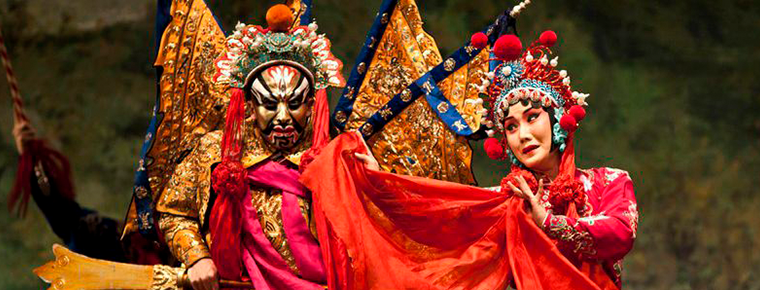
-
Cocotto Sea Scenic Area
The Cocotto Sea Scenic Area and Xinjiang Cocotto Sea National Geological Park, located in Fuyun County, Altay District, northern Xinjiang, covers an area of 788 square kilometers,.
Views: 179 Time 2018-12-12 -
Beidahuang Modern Agricultural Park
Beidahuang Modern Agricultural Park, located at No. 146 Xiangfu Road, Xiangfang District, Harbin City, covers an area of 667,000 square meters and is a "national AAAA-level tourist attraction&quo.
Views: 162 Time 2018-12-26 -
Kaiping Diaolou and Villages
In Kaiping city, there are many blockhouses, towns and countryside. There are more than a dozen villages and less than two or three villages. From Shuikou to Lily.
Views: 84 Time 2019-01-29 -
Iron Coal Steam Locomotive Museum
Tiaobingshan Steam Locomotive Museum, formerly known as Iron Coal Steam Locomotive Museum. National AAAA-level scenic spots and national industrial tourism demonstration sites.
Views: 189 Time 2019-02-22 -
Hangzhou Reviews
Hangzhou Ci Commentary, commonly known as Xiaoshu, is the traditional art of rap and singing in Hangzhou, Zhejiang Province. It is a kind of folk art that tells stories.
Views: 190 Time 2019-05-02 -
Nail twist Jiaru jiacuo
Jiaru is a traditional dance of Mosuo people in Lugu Lake, Yunnan Province. It is a song and dance for people to celebrate harvest, festivals and pray for gods..
Views: 273 Time 2019-05-05 -
Liaocheng acrobatics
Liaocheng acrobatics is a traditional folk acrobatics art in Shandong Province. Liaocheng is one of the birthplaces of Chinese acrobatics. In the late Neolithic period, Liaocheng was the main area whe.
Views: 147 Time 2019-05-13 -
Mongolian Long tune Folk Songs
Mongolian long-tune Mongolian is called "Uri Tudao", which means long song. It is characterized by fewer words, long-lasting, soothing and free, suitable for narration, and longer lyric. .
Views: 194 Time 2019-06-04 -
Beijing Jiaotong University
Beijing Jiaotong University is a national key university directly under the Ministry of Education, jointly constructed by the Ministry of Education, the Ministry of Transport, the Beijing Municipal Pe.
Views: 154 Time 2019-09-06 -
Cao Bin
Cao Bin (931 - 999 years), Zi Guohua, really decides Lingshou (now Hebei). Northern Song Dynasty The founding fathers..
Views: 175 Time 2019-09-15 -
Hefei University
hefei university (Hefei University), located in Hefei, the capital of Anhui, is a common higher education institution jointly organized by the state and local governments and cities and municipalities.
Views: 143 Time 2019-11-13 -
Yamugou scenic spot
Yamugou scenic spot is located on the Bank of Taiping River (a famous scenic spot in Guizhou Province) in Jiangkou County, Tongren City, Guizhou Province, adjacent to Fanjing Mountain (National Nature Reserve, China's top ten famous summer resort). .
Views: 154 Time 2020-10-13
